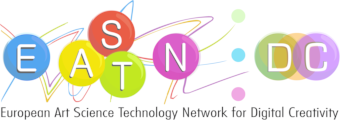This paper aims at exploring how new technologies can be incorporated in guided tours, and how the tourist guides’ role is altered as a consequence. The methodology to be followed is a critical literature review, in combination with reflective personal experience of the authors. It is a part of an ongoing research, expected to contribute to a methodology of deploying new technologies to support of Heritage interpretation in guided tours. People’s needs, expectations and behaviour in the modern digital world have changed, and so have the tourists’. Modern tourists expect guided tours to incorporate new technologies, enhancing their experience and allowing them to share it in the digital sphere. Consequently, the guided tours’ structure has to adapt, and so do the tourist guides. This paper’s primary aim is to explore possible ways of introducing a range of new technologies in the guided tours, in light of the modern perception of the guided tours. Today’s concept of tour guiding goes beyond merely providing information and accessibility, and focuses on interpretation, involvement, interaction and the use of senses, in order for the tourists to develop a deeper understanding of the areas visited, and long lasting experiences. This deeper engagement of the tourists with their destinations is not only dictated by demand and market needs, but also by the need to monitor and optimize the tourists’ behaviour within the sustainable tourism principles. Therefore, this paper will explore how media such as mobile phone apps and audiovisual devices can assist interpretation, induce tourists’ involvement in the conduct of the tour, support interaction between the tour participants and enhance empathy and the use of senses, in accordance with the aforementioned demands and principles. Another aim is to address the scepticism expressed by many tourist guides about the introduction of new technologies in the guided tours. There is a widespread fear that the introduction of the new technologies in the guided tours might lead to the conclusion that professional tourist guides are no longer necessary. The launch of various self-guiding apps or digital guides, reinforces this fear. Nevertheless, the demand for new-concept guided tours, as described above, imply that the tourist guide’s role is upgraded, albeit altered. Therefore, this paper will explore how the tourist guides have to adapt to the new environment, embracing the new technologies as valuable resources, to the end of providing high-quality services to their guests and thus reinforcing their role in the guided tours market. The objectives of this paper will be approached with a combination of critical literature review and reflective personal experience. It is acknowledged by many scholars and tourism stakeholders that the tourist guides hold a substantial role in the tourist market and therefore a large number of studies and papers on tour guiding would be expected. However, it was in the last two decades that scientific literature on tourist guides and guiding grew, following the general trend of scientific research, but also the notable growth of tourism itself. Nevertheless, the majority of published papers approach the topic not in its essence, but from different perspectives, such as business management, economy, geography, etc. That applies also to the empirical studies, as most of them focus on tourist satisfaction or employer-employee relation studies. However, there is a number of papers and studies addressing the practice of tour guiding, which approach it from a cognitive and theoretical perspective, contributing to the deeper understanding of the practice and proposing innovations and improvements. A common thread, though, throughout almost the entire literature, is the complete or partial absence of the tourist guides’ view regarding the improvements and innovations proposed. At this point this paper will employ the reflective personal experience of the authors, as tourist guides, in critically reviewing the observations, the conclusions and the proposals included in the relative literature. In a changing and growing digital world, tourists develop new expectations about the guided tours and so do other stakeholders of the tourism industry, concerning sustainable tourism. Therefore, modern guided tours should be structured as to provide solid and memorable experiences for the tourists, promoting interpretation and encouraging involvement, interaction, empathy and the use of the senses, with the new technologies supporting this approach. This paper aims to contribute to this end, by critically reviewing the relevant literature and assessing the proposed improvements with the employment of the tourist guide experience of the authors.
Back
“Reflections: Bridges between Technology and Culture, Physical and Virtual”
is supported by:






